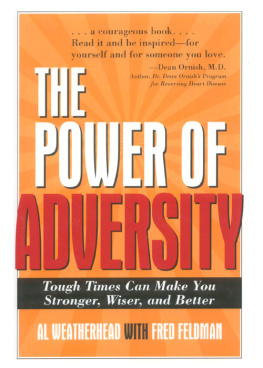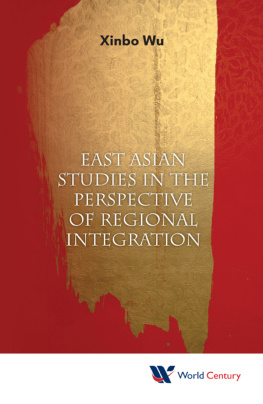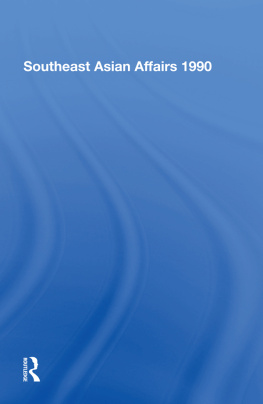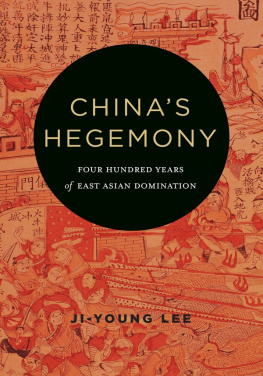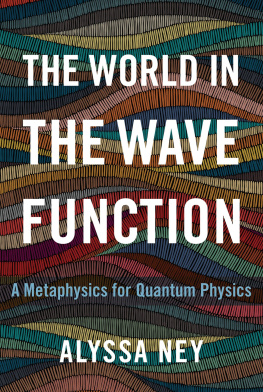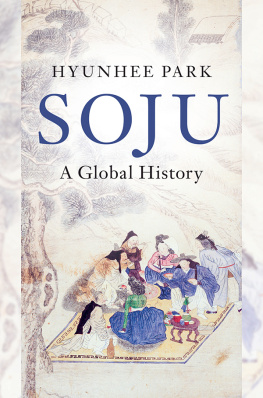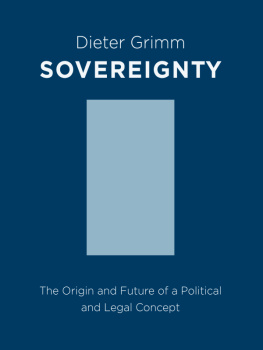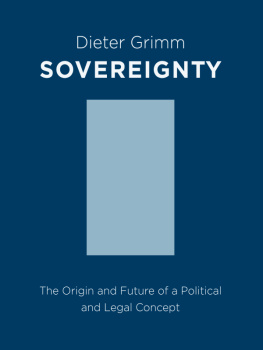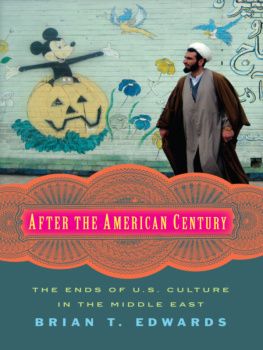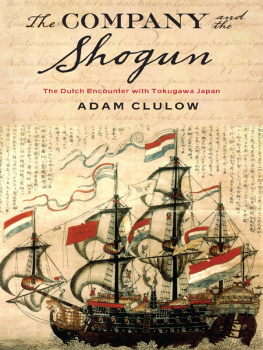Alyssa M. Park - Sovereignty Experiments (Studies of the Weatherhead East Asian Institute, Columbia University)
Here you can read online Alyssa M. Park - Sovereignty Experiments (Studies of the Weatherhead East Asian Institute, Columbia University) full text of the book (entire story) in english for free. Download pdf and epub, get meaning, cover and reviews about this ebook. year: 2019, publisher: Cornell University Press, genre: Politics. Description of the work, (preface) as well as reviews are available. Best literature library LitArk.com created for fans of good reading and offers a wide selection of genres:
Romance novel
Science fiction
Adventure
Detective
Science
History
Home and family
Prose
Art
Politics
Computer
Non-fiction
Religion
Business
Children
Humor
Choose a favorite category and find really read worthwhile books. Enjoy immersion in the world of imagination, feel the emotions of the characters or learn something new for yourself, make an fascinating discovery.

- Book:Sovereignty Experiments (Studies of the Weatherhead East Asian Institute, Columbia University)
- Author:
- Publisher:Cornell University Press
- Genre:
- Year:2019
- Rating:3 / 5
- Favourites:Add to favourites
- Your mark:
- 60
- 1
- 2
- 3
- 4
- 5
Sovereignty Experiments (Studies of the Weatherhead East Asian Institute, Columbia University): summary, description and annotation
We offer to read an annotation, description, summary or preface (depends on what the author of the book "Sovereignty Experiments (Studies of the Weatherhead East Asian Institute, Columbia University)" wrote himself). If you haven't found the necessary information about the book — write in the comments, we will try to find it.
Alyssa M. Park: author's other books
Who wrote Sovereignty Experiments (Studies of the Weatherhead East Asian Institute, Columbia University)? Find out the surname, the name of the author of the book and a list of all author's works by series.
Sovereignty Experiments (Studies of the Weatherhead East Asian Institute, Columbia University) — read online for free the complete book (whole text) full work
Below is the text of the book, divided by pages. System saving the place of the last page read, allows you to conveniently read the book "Sovereignty Experiments (Studies of the Weatherhead East Asian Institute, Columbia University)" online for free, without having to search again every time where you left off. Put a bookmark, and you can go to the page where you finished reading at any time.
Font size:
Interval:
Bookmark:
SOVEREIGNTY EXPERIMENTS
Korean Migrants and the Building of Borders in Northeast Asia, 18601945
Alyssa M. Park
CORNELL UNIVERSITY PRESS ITHACA AND LONDON
For my parents
Maps
Figures
Tables
Growing up in New York, I found myself surrounded by people who came from elsewhere. Some arrived from a neighboring borough, others from far-off places I had not heard of. It was their stories of journeying that stirred my curiosity about connections between near and distant places and liminal spaces. A personal interest grew into a scholarly one, and this book is the product of that journey.
Many people helped me along the way. At Columbia I benefited greatly from the advising of Charles Armstrong, Jahyun Kim Haboush, Ted Hughes, Adam McKeown, Carol Gluck, and Mark von Hagen, all of whom inspired me and provided constructive criticism when I needed it. Adam wrestled with my draft chapters and chatted with me about the possibilities of doing transnational history. Stephen Kotkin, who first introduced me to Russian history at Princeton, pushed me to think broadly and helped shape the project from its inception. Columbia was also a stimulating place to work because of fellow graduate students. I especially thank Matt Augustine, Li Chen, Hwisang Cho, Adam Clulow, Colin Jaundrill, Charles Kim, Cheehyung Kim, Jisoo Kim, Joy Kim, Liz LaCouture, and Jason Petrulis.
During my research stints abroad, I received kindness from local scholars. In Vladivostok, Igor Tolstokulakov helped me navigate the intricacies of working at Far Eastern State University, Institute of History, Archaeology and Ethnography, and state archives. Aleksandr Toropov and his staff provided guidance in the Russian State Historical Archive of the Far East, and librarians at the Institute of History generously allowed me to use their collection. I give special thanks to Slava and Higyng, who helped me transcribe documents because photocopying was not possible. During my stay in Korea, Lew Young-Ick at Yonsei University and Ban Byung Yool at the Northeast Asia History Foundation introduced me to scholars and sources related to my topic. Finally, I thank Ross King at the University of British Columbia and German Kim at Kazakh National University for opening up their homes and personal libraries to me in Vancouver and Almaty, respectively, many years ago.
At the University of Iowa, I have had the privilege of being part of a nurturing intellectual community. In particular, I thank Elizabeth Heineman and Glenn Penny for their encouragement. Jen Sessions always had her door open and provided critical feedback on the book when I needed it most. Shuang Chen is a warm-hearted colleague; I owe her special thanks for checking many of my translations of literary Chinese documents. I am grateful to Stephen Vlastos for reading a draft of most of the manuscript and for believing in the project. For conviviality and meals along the way, I thank Songmi An, Steve Choe, Melissa-Anne Curley, Kendall Heitzman, Yumiko Nishi, and Jiyeon Kang.
A number of colleagues have provided encouragement over the years: Sayaka Chatani, Eleanor Hyun, Nancy Lin, Jenny Wang Medina, and Yumi Kim. I am grateful to Yumi and Charles Steinwedel for reading several chapters of the manuscript and helping me clarify my arguments. I thank Daham Chng and Hanshin Kim for annotated translations of several literary Chinese sources into Korean, and Aiqi Liu for translations of two select Chinese documents. Andre Schmid was an ideal anonymous reader. His comments and those of another reader helped improve this work immensely.
The project has benefited from the financial support of several institutions. I gratefully acknowledge Columbia University, the International Research and Exchanges Board, Fulbright-Hays Commission, Mellon/ACLS, Korea Foundation, Korea Institute at Harvard University, Council on East Asian Studies at Yale University, University of Iowa, and Kennan Institute of the Woodrow Wilson Center in Washington, D.C. At Cornell University Press, I thank Roger Haydon for guiding the book through the publishing process. I also thank Rob Shepard at the University of Iowas Digital Studio for making the maps. Paul Behringer helped secure permissions for the images. Any errors are, of course, my own.
Finally, I am indebted to my family and friends on the East and West Coasts and in Iowa, especially Deborah, Felice, Joyce, and Jenny. My greatest debt is to my parents, my brother, and his family. They have been with me the longest on this journey, and I could not have finished without them.
AVPRIArkhiv vneshnei politiki Rossiiskoi imperii (Archive of Foreign Policy of the Russian Empire)
DODalekaia okraina
f./o./d./convention to denote fond (archival collection), opis (subdivision within archival collection), delo (folder) for Russian archival materials
GARFGosudarstvennyi arkhiv Rossiiskoi Federatsii (State Archive of the Russian Federation)
GAPKGosudarstvennyi arkhiv Primorskogo Kraia (State Archive of Primorskii Krai)
Chuhan Ilbon kongsagwanKuksa Pynchan Wiwnhoe, ed., Chuhan Ilbon kongsagwan kirok
Hanin kwallyn charyoKu Snhi and Cho Mynghi, eds., Chungguk tongbuk chiyk Hanin kwallyn charyo
Itogi perepisi Koreiskogo naseleniia v 1929 g.Vladivostokskii okruzhnoi statisticheskii otdel, Itogi perepisi Koreiskogo naseleniia Vladivostokskogo okruga v 1929 goda
K voprosu o migratsii Koreiskogo naseleniiaIspolnitelnyi komitet Primorskogo kraevogo Soveta narodnykh deputatov, K voprosu o migratsii Koreiskogo naseleniia na iuge Dalnego Vostoka (18641932 gg.)
Kangjwa yjigiKukhak Chinhng Yngu Sap Unyng Wiwnhoe, ed., Kangbuk ilgi; Kangjwa yjigi; Aguk yjido
Ku Hanguk oegyo munsKory Taehakkyo Asea Munje Ynguso, ed., Ku Hanguk oegyo muns
Ku Hanmal i choyakKukhoe Tosgwan Ippp Chosaguk, ed., Ku Hanmal i choyak
l.list or listy (page number) for Russian archival materials
Obzor POObzor Primorskoi oblasti
RGIADVRossiiskii gosudarstvennyi istoricheskii arkhiv Dalnego Vostoka (Russian State Historical Archive of the Far East)
Tongmun hwigoPae Usng and Ku Pmjin, eds., Kugyk Tongmun hwigo pmwl saryo
VEVVladivostokskie eparkhialnye vedomosti
This book is a transnational history of a people and place, located at the intersection of four states and at the putative divide between East Asia and Russia. Writing about this subject has required a careful consideration of names and terms because naming itself lay at the heart of disputes between various actors in the region. I clarify terms below and explain administrative-territorial toponyms to help the reader along.
The Tumen valley is the name I give to a region that spanned the contiguous areas of the Maritime Province in Russia, Jilin Province in China, and Hamgyng Province in northern Korea. It is a geographical designation for a region through which the Tumen River flowed.
More specifically, the book focuses on the Kando region in Jilin and Ussuri in the Maritime. Kando was the subject of disputes first between Chosn Korea and Qing China, and then Qing/Republican China and Japan. Kando, the Korean transliteration for island in between (Kant in Japanese; Jiandao in Chinese), came into use in the late nineteenth century. The toponym, however, was never agreed upon. The area was referred to in general terms, such as area near the river, as well as Yanji in the Qing case and Kando in the Chosn case. The Japanese called the region Kant and established a consular regime there in 1907. For discussion prior to 1907, I use topographical designations for the region (left or north bank of the Tumen) and privilege the Korean transliteration of Kando because that is what the majority population of Koreans called it. After 1907, when the regions districts and cities were discussed with more specificity in documents, I give both Chinese and Korean transliterations, which are still in use today. My choices should not be read as acquiescence to the nationalist and imperialist views of contemporaries. The same holds for my use of Manchuria, which refers to the region of northeast China bordering on Korea and Russia.
Next pageFont size:
Interval:
Bookmark:
Similar books «Sovereignty Experiments (Studies of the Weatherhead East Asian Institute, Columbia University)»
Look at similar books to Sovereignty Experiments (Studies of the Weatherhead East Asian Institute, Columbia University). We have selected literature similar in name and meaning in the hope of providing readers with more options to find new, interesting, not yet read works.
Discussion, reviews of the book Sovereignty Experiments (Studies of the Weatherhead East Asian Institute, Columbia University) and just readers' own opinions. Leave your comments, write what you think about the work, its meaning or the main characters. Specify what exactly you liked and what you didn't like, and why you think so.

